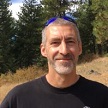
White evangelicals believe they see truths that you and I cannot.
While Americans around the country watched an inflamed mob overrun the Capitol on January 6, the evangelical participants in that mob saw something else: a holy war. Insurgents carried signs that read “Jesus Saves,” “In God We Trust,” “Jesus 2020,” and “Jesus Is My Savior, Trump Is My President.” One man marched through the halls of Congress carrying a Christian flag, another a Bible. They chanted, “The blood of Jesus covering this place.”
As law enforcement authorities and media outlets track down and identify these insurrectionists, we are beginning to understand who they are and what they wanted. Amid the QAnon adherents, antisemites, neo-Confederates, and revolutionary cosplayers were the evangelical faithful: those who see themselves as the vanguard of God’s end-times army. Their exultant participation in the riot represented some of the most extreme political action that any group of evangelicals has taken in recent history.


